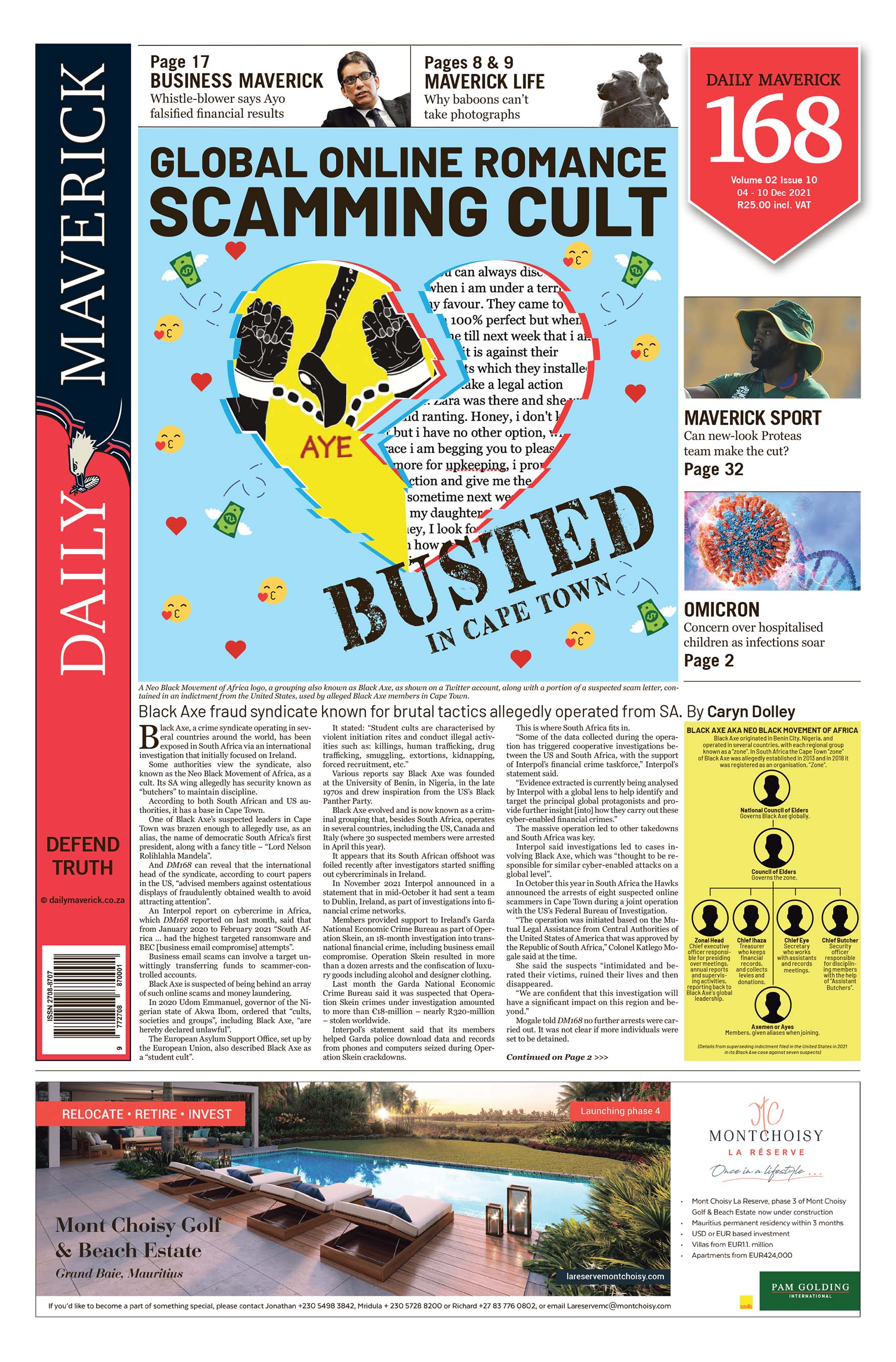Wednesday, 1 December marked World Aids Day and 40 years since the first reported cases of a mysterious illness leading to death that would later become known as acquired immunodeficiency syndrome (AIDS), which is brought on by the human immunodeficiency virus (HIV).
According to UNAIDS statistics there are still more than 37 million people living with HIV/AIDS globally, 7.8 million of whom are in South Africa, an alarming number by any measure.
However, the day was overshadowed by our focus on the newly discovered Covid-19 variant, Omicron.
We have now been distracted from dealing with HIV/AIDS as time, energy and resources have to be rerouted towards a response to Covid-19, with a lot of people living with HIV being denied their life-saving medication and services as a result of Covid-19 lockdown measures. This has manifested in healthcare facilities focusing on treating only Covid-19 patients and a shortage of antiretroviral medication, putting at risk the lives of an estimated 500,000 people living with HIV/AIDS and setting back the gains that have been made over the past 40 years.
What assisted in the fight against the spread of HIV/AIDS was not only global solidarity in terms of ensuring that people had access to antiretrovirals, but also a concerted effort for people to know and understand the nature of HIV and take responsibility for understanding their treatment needs.
With a public health system that is straining and undercapacitated, South Africa finds itself in a precarious position to deal with these diseases as the much-touted inequalities that provide a fertile breeding ground for both HIV/AIDS and Covid-19 threaten to derail an effective response to both. However, there is another aspect that threatens the country’s wellbeing.
While activists are demanding more access to vaccines, a significant number of people are suspicious and hesitant to take the vaccines. This has shown itself in the fact that only 14.5 million people have been fully vaccinated despite South Africa having received 25.6 million doses. This means we have an excess supply of vaccines that is likely to go to waste as a result of expiry dates. So what good are these vaccines when there’s no one to take them?
I am often reluctant to enter into the vaccine hesitancy debate, but in light of what is happening I don’t think we can afford to fence-sit while people’s lives are unnecessarily being placed at risk. I attended some discussions recently hosted by the Steve Biko Centre for Bioethics at Wits University that sought to understand hesitancy and the possible tools that could be employed to curb it. It was found (perhaps most pertinently) that in the countries where people felt confident in their government’s response to the pandemic, vaccine hesitancy was lower. This is an indicator that people in South Africa do not have confidence in our government’s response.
Another point influencing people’s hesitancy was the issue of “prayer vs vaccine”, when people felt their deep-seated religious beliefs were more stable and familiar, therefore eliciting a deep confidence, so that when confronted with things they are not so confident about, they retreat to those religious beliefs. The discussion also noted that general vaccine hesitancy had been increasing over the past 12 years because people felt “left out” of the vaccine development conversation. While misinformation was also cited as a reason for hesitancy, the dogmatism and inaccessibility of science also left people feeling estranged and suspicious of vaccines.
So what are we to do with this information? It clearly means that the government needs to re-evaluate its vaccination strategy by bringing people along in the explanation of the science, having a clear, consistent and transparent plan that people can buy into and also getting the buy-in of faith-based organisations.
Of course, there is also the much-contested option of mandatory vaccinations, often rebuffed by the quoting of our Constitution’s Section 12(2)(b) of the Bill of Rights, which states: “Everyone has the right to bodily and psychological integrity, which includes the right to security in and control over their body.”
Yet if people’s “bodily and psychological integrity” is placing others at risk not only of getting Covid-19 but also of being denied healthcare services such as for HIV/AIDS and other serious medical conditions, then surely there is a case to be made for the limiting of this right? With clinicians having noted that during the third wave clinics were filling up with unvaccinated people, it meant that they were preventing people who needed emergency care from accessing it. How do you justify that?
UNAIDS executive director Winnie Byanyima has been quoted as saying that “the Covid-19 pandemic must not be an excuse to divert investment from HIV. There is a risk that the hard-earned gains of the AIDS response will be sacrificed to the fight against Covid-19, but the right to health means that no one disease should be fought at the expense of the other.”
It would be wise for us to reach beyond our individual beliefs and show solidarity with one another by doing the uncomfortable and ensuring that we all survive to tell the tale of the great Covid-19 pandemic. DM168
This column first appeared in our weekly Daily Maverick 168 newspaper which is available for R25 at Pick n Pay, Exclusive Books and airport bookstores. For your nearest stockist, please click here.

[hearken id=”daily-maverick/8881″]

















 Become an Insider
Become an Insider